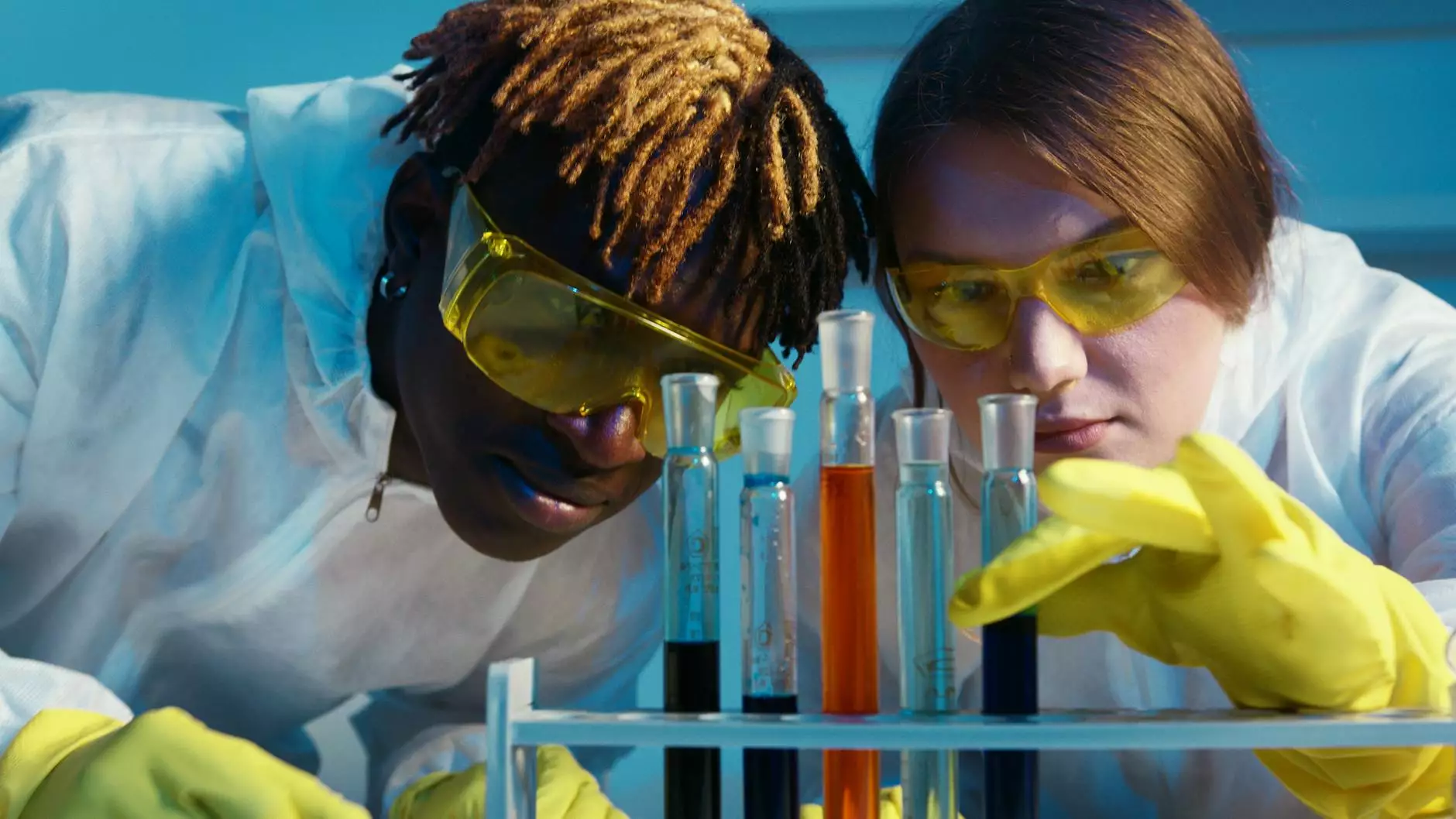Comprehensive Guide to Chemicals for Treating Water

Understanding Water Treatment
Water treatment is a vital process that ensures the safety and quality of water for various uses. This is especially crucial for drinking water, industrial processes, and recreational activities. The use of chemicals for treating water forms the backbone of effective water treatment systems.
The Importance of Water Treatment Chemicals
The chemicals for treating water have numerous roles, including but not limited to:
- Flocculation and Coagulation: These chemicals help in aggregating tiny particles into larger clusters, making them easier to remove during filtration.
- Disinfection: Chemicals such as chlorine and ozone are essential for killing harmful pathogens, ensuring that the water is safe to drink.
- pH Adjustment: Maintaining a balanced pH is crucial for both safety and efficacy in water treatment processes.
- Corrosion Control: Some chemicals are employed to minimize the corrosion of pipes, fixtures, and other systems that handle water.
- Algae Control: Chemicals are used to mitigate the growth of algae in water bodies, which can impact water quality.
Types of Chemicals for Treating Water
There are several categories of chemicals for treating water, each serving distinct purposes:
1. Coagulants and Flocculants
These substances help in the removal of suspended solids from water. Common coagulants include:
- Aluminum Sulfate: Widely used for its effectiveness in coagulating particles.
- Ferric Chloride: Known for removing impurities and is readily used in municipal water treatment.
- Polymeric Flocculants: These are used to agglomerate fine particles for easier filtration.
2. Disinfectants
Ensuring that water is microbiologically safe is paramount. Key disinfectants include:
- Chlorine: This is the most common disinfectant used worldwide due to its effectiveness and cost-efficiency.
- Ozone: A powerful oxidant that kills bacteria and viruses without leaving harmful residues.
- Ultraviolet (UV) Light: While not a chemical, UV disinfection is crucial for its ability to eliminate pathogens without chemicals.
3. pH Adjusters
Maintaining the correct pH level is essential for water treatability and safety. Common pH adjusters include:
- Sodium Hydroxide: Used to raise pH levels, particularly in acidic water sources.
- Hydrochloric Acid: Employed for lowering the pH of alkaline water.
4. Corrosion Inhibitors
These chemicals protect pipelines and storage tanks from corroding during water treatment processes. Examples include:
- Polyphosphates: Help in preventing scale buildup and corrosion in pipes.
- Silicates: Often used in combination with other chemicals for corrosion protection.
5. Algae Control Chemicals
Managing algae is critical in maintaining water clarity and quality. Commonly used substances include:
- Copper Sulfate: Effective for controlling algae growth in lakes and reservoirs.
- Endothall: Targeted for specific types of aquatic weeds and algae.
Applications of Water Treatment Chemicals
The application of chemicals for treating water spans across various sectors. Here are some key areas:
1. Municipal Water Treatment
City water utilities heavily rely on a combination of these chemicals to provide potable water to residents. The primary goal is to meet or exceed safety standards set forth by environmental agencies.
2. Industrial Water Treatment
Industries such as manufacturing, pharmaceuticals, and food processing require meticulous water treatment processes. Chemicals are used to ensure that water used in production is free from contaminants, adhering to regulatory standards.
3. Wastewater Treatment
In wastewater treatment plants, chemicals are crucial for breaking down organic matter and ensuring a safe return to the environment or for further processing. Key processes include:
- Secondary Treatment: Biochemical processes reinforced by chemical aids for effective breakdown of organic pollutants.
- Advanced Oxidation Processes (AOPs): Utilizing strong oxidants for degrading harmful pollutants.
Choosing the Right Chemical Supplier
Euro Chem Supplies understands the importance of reliability and quality in chemical supply. As a trusted provider under the chemical suppliers category, they offer a comprehensive range of chemicals for treating water that meet industry standards.
Key Considerations When Selecting a Supplier:
- Quality Assurance: Ensure the supplier offers certified products with documented efficacy.
- Customer Support: A reliable supplier provides technical support and advice for chemical applications.
- Regulatory Compliance: Verify that the supplier adheres to local and international safety and environmental regulations.
- Flexibility and Availability: Choose suppliers that can meet your demand fluctuations and provide timely deliveries.
Conclusion
In conclusion, understanding the diverse applications and types of chemicals for treating water is essential for ensuring safe and effective water treatment processes. With reputable suppliers like Euro Chem Supplies, businesses can maintain compliance with safety standards and guarantee the quality of their water. Investing in high-quality chemicals not only safeguards public health but also enhances operational efficiency in various sectors.
Further Resources
For those looking to delve deeper into the world of water treatment, consider exploring the following resources:
- Euro Chem Supplies - Your trusted partner in chemical supply.
- U.S. Environmental Protection Agency - Water Research
- World Health Organization - Water, Sanitation, and Health
© 2023 Euro Chem Supplies. All rights reserved.









